Overview
Spark Stories is an innovative AI-powered platform I co-founded that creates personalized, interactive stories for children aged 7-14. Built leveraging large language models (LLMs) and Stable Diffusion, Spark Stories aims to make reading more engaging by letting kids be the protagonists of their own adventures. Think of it as a "Netflix for stories" that adapts to each child's interests and reading level, making reading both fun and personal. Users can explore pre-made adventures or create their own, providing a rich, adaptive storytelling experience that is both educational and entertaining.
The Challenge
Despite the increasing screen time among children (5.5-8.5 hours daily), reading engagement remains low. Studies show that only 10-18% of children use screens for reading, dedicating just over an hour daily to this activity, while other forms of entertainment dominate their screen time (Common Sense Media, 2021; Pew Research Center, 2021). Traditional digital libraries offer static content that doesn't cater to children's changing interests or provide interactive engagement. As children grow, their reading time tends to decrease, further compounding the challenge of developing consistent reading habits.
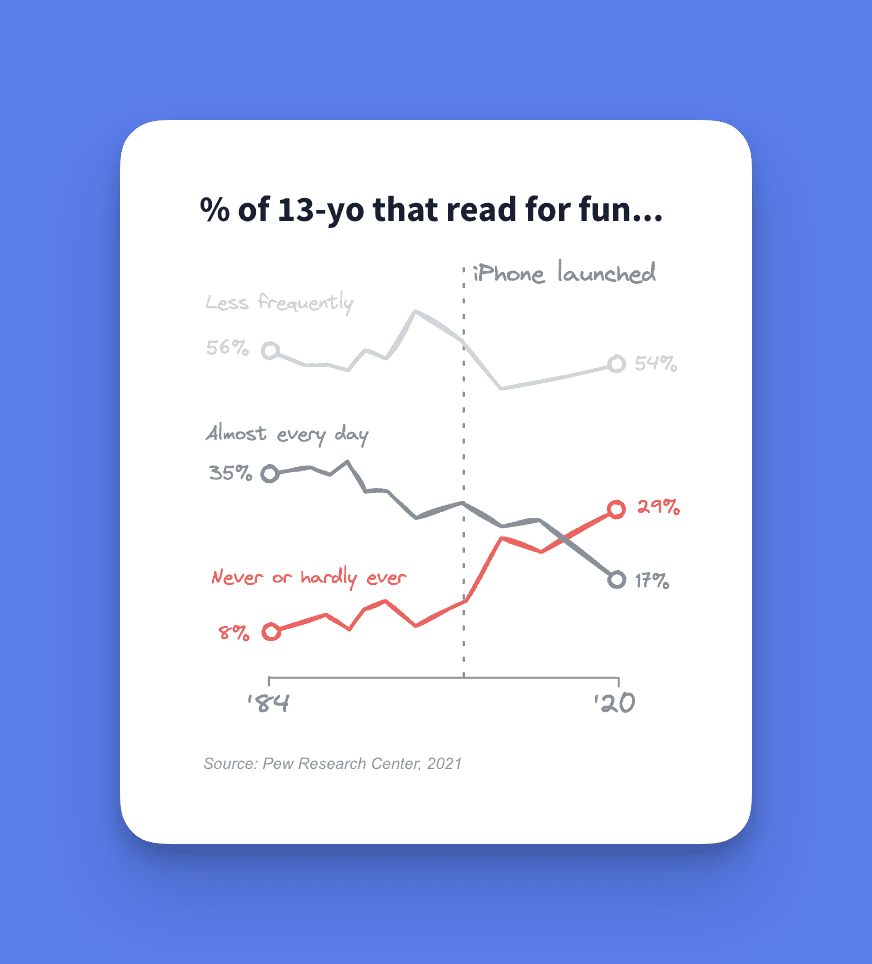
Spark Stories was designed to address these challenges by:
Creating Personalized Stories: Providing stories tailored to each child's interests, making reading more enjoyable and meaningful.
Enhancing Engagement: Allowing users to shape story outcomes, making the experience more interactive and immersive.
Addressing Screen Time Concerns: Offering features like audio storytelling to provide educational screen time alternatives while keeping children entertained and engaged.
Supporting Systematic Literacy Development: Integrating educational frameworks like phonics and Lexile measures to ensure that reading is both entertaining and skill-building.
The Solution
Spark Stories combines advanced AI models with educational frameworks to create an engaging reading experience:
Daily Personalized Stories
Every day, Spark Stories generates five new stories specifically tailored to each user's interests and reading level. This helps maintain a daily habit of reading that is both fun and educational. Users can also explore an endless library of pre-made stories or stories shared by others.
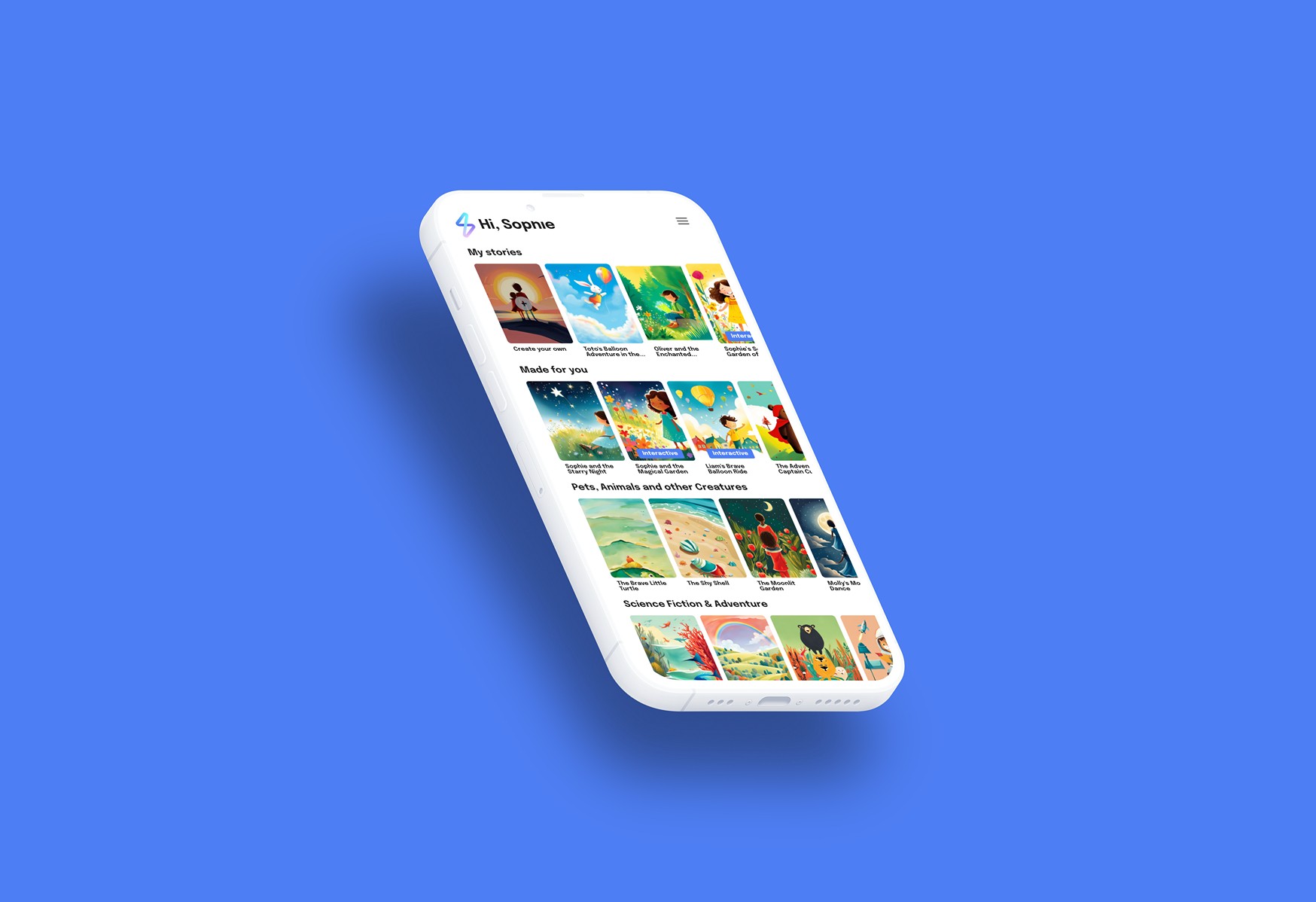
Three Story Types
Regular Stories: Like traditional books but digital, each story is generated uniquely for the user. Stories include images and text-to-speech capabilities for immersive listening.
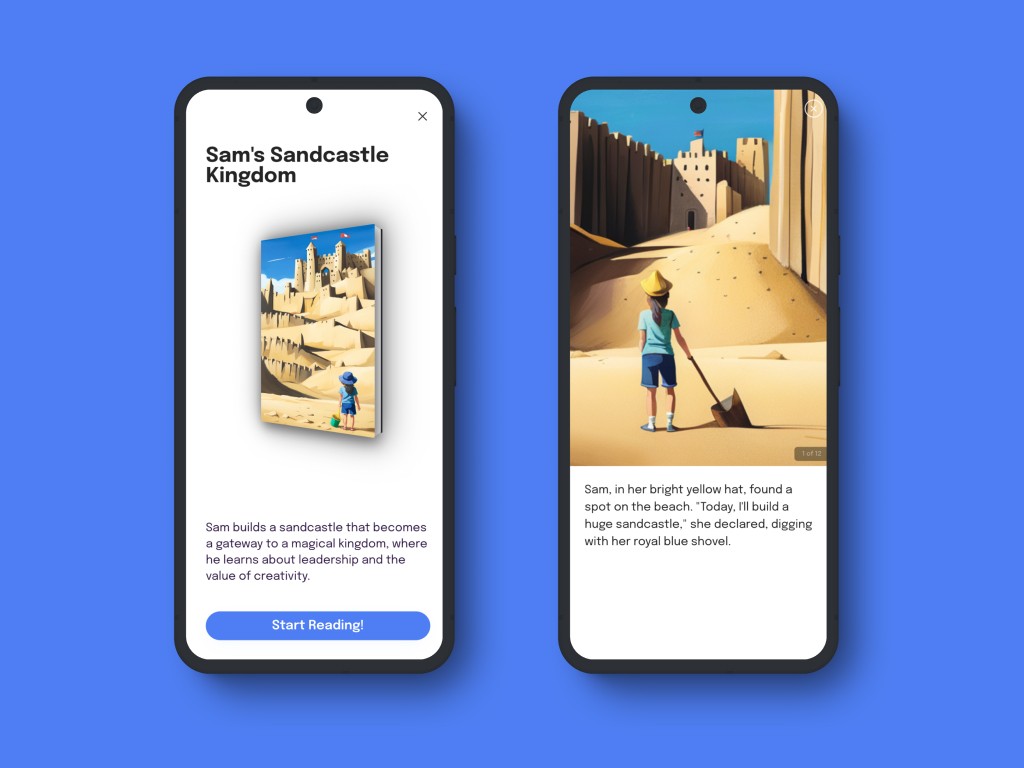
Choose Your Own Adventure: Interactive stories where users make decisions that influence the story, ensuring each adventure is unique.
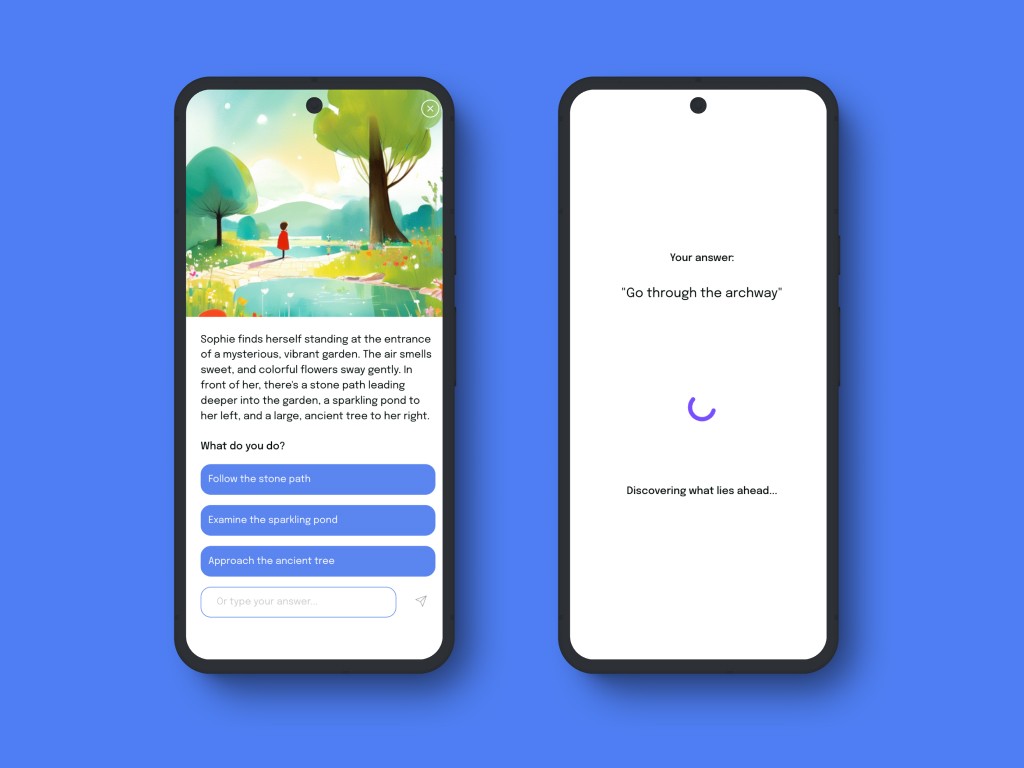
Audio Stories: Personalized audio experiences similar to popular audio platforms, but uniquely tailored to each child’s preferences.
User-Driven Story Creation
Users can create their own stories, either making themselves the protagonist or inventing entirely new characters and plots. This feature fosters creativity and ownership, giving children a chance to not just read but actively participate in storytelling.
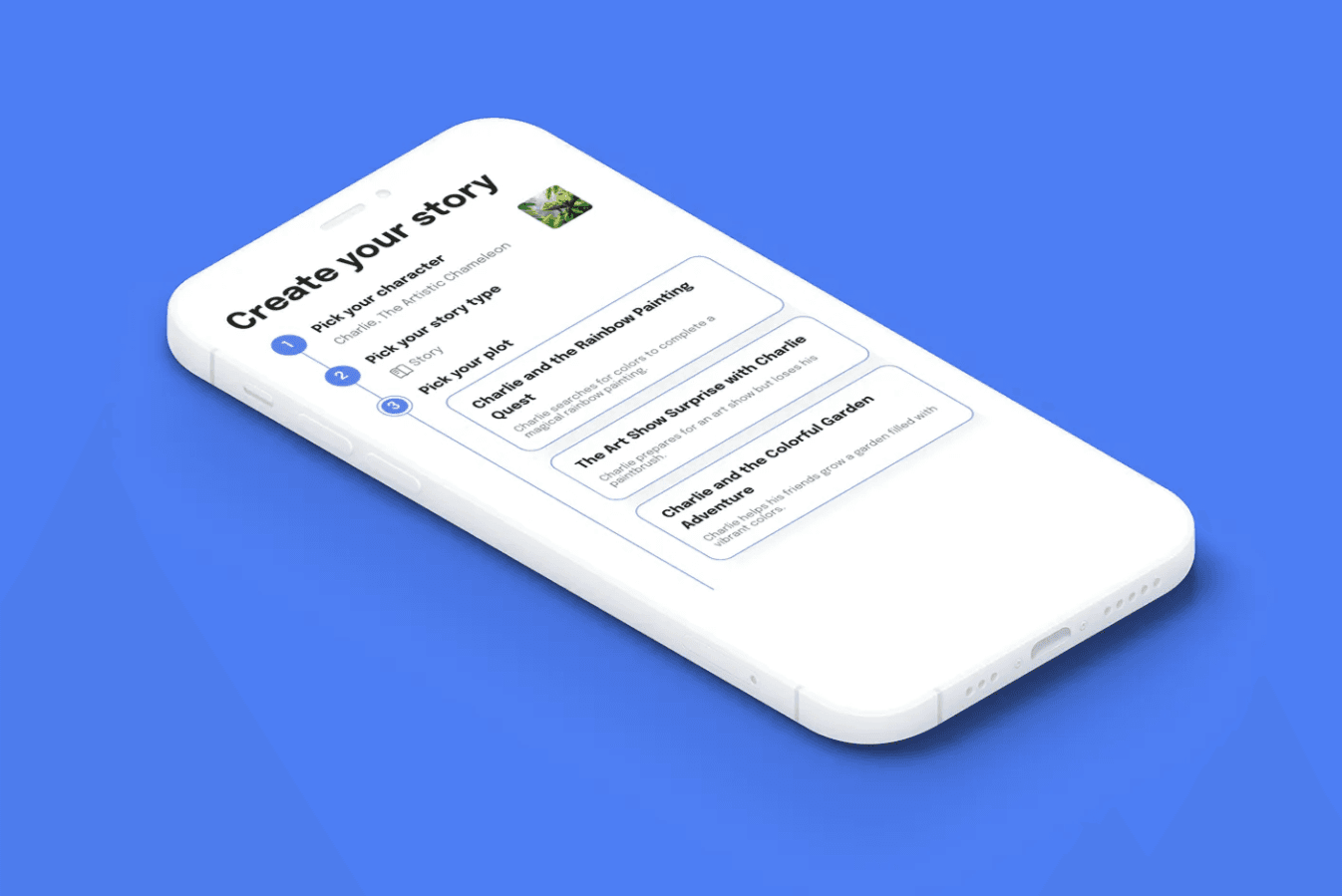
Personalization & Adaptive Learning
Spark Stories learns from user interactions – including story completion rates, feedback provided at the end of each story, and bounce rates from stories they didn’t like. This data helps the platform adjust future recommendations, creating a tailored reading experience that grows with the user's changing interests and developmental stage.
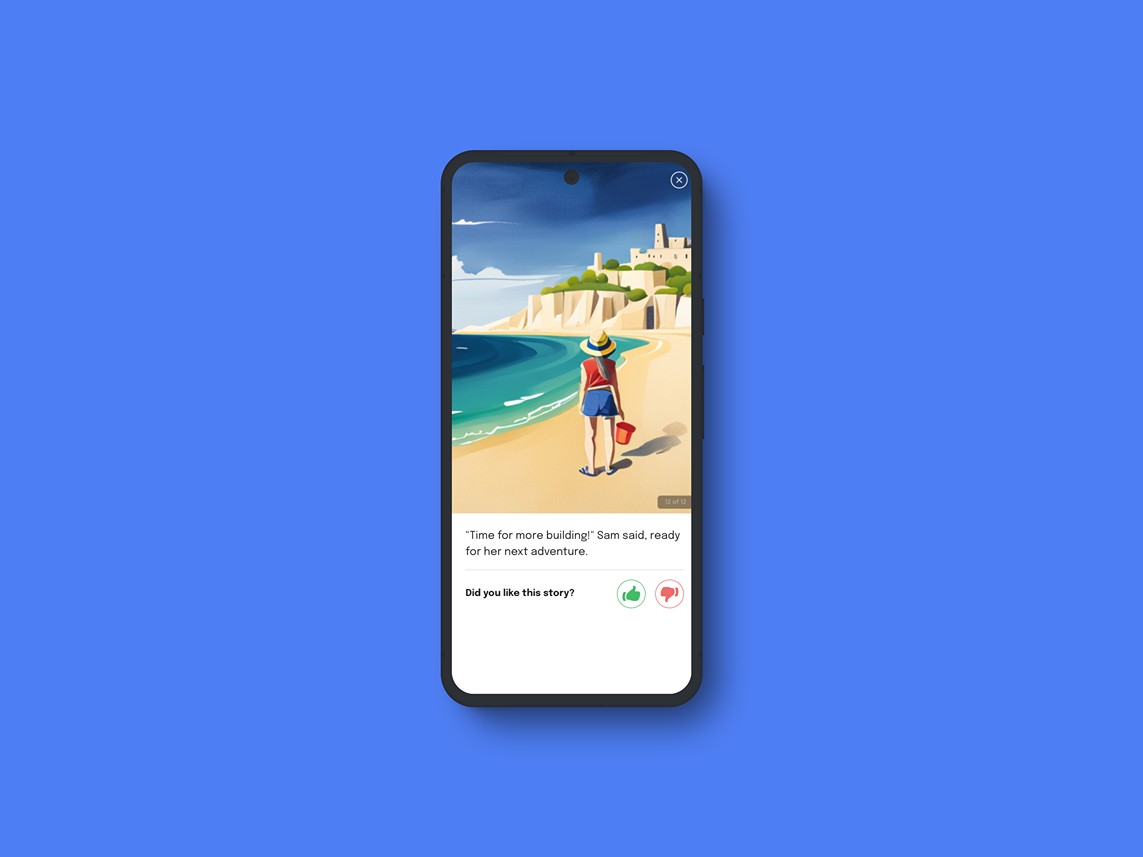
Product Development
As the co-founder and CTO of Spark Stories, I led the product vision and development from concept to launch, ensuring that we built a product that met the needs of children, parents, and educators:
Product Discovery & User Research
Conducted 50+ user interviews with parents, teachers, and children to deeply understand pain points and expectations. These insights formed the foundation for product features that cater to real user needs.
Collaborated with educational experts to align story content with literacy goals, ensuring that every feature added educational value and addressed key challenges in reading engagement.
Engaged in market analysis to identify gaps in the current digital reading landscape, focusing on interactive storytelling and personalized learning experiences.
Prototyping & MVP Development
Led the prototyping sessions and guided the product through four key MVP iterations:
MVP 1.0: Developed basic bedtime stories with calming narratives, based on insights from parents seeking screen-free winding-down activities for their children.
MVP 2.0: Added character customization, allowing children to see themselves as the protagonist, which increased engagement and ownership.
MVP 3.0: Introduced interactive storytelling, where children made decisions that influenced story outcomes, fostering critical thinking and engagement.
MVP 4.0: Enhanced AI models for faster, high-quality story generation, incorporated audio features to reduce screen time, and optimized backend infrastructure for scalability.
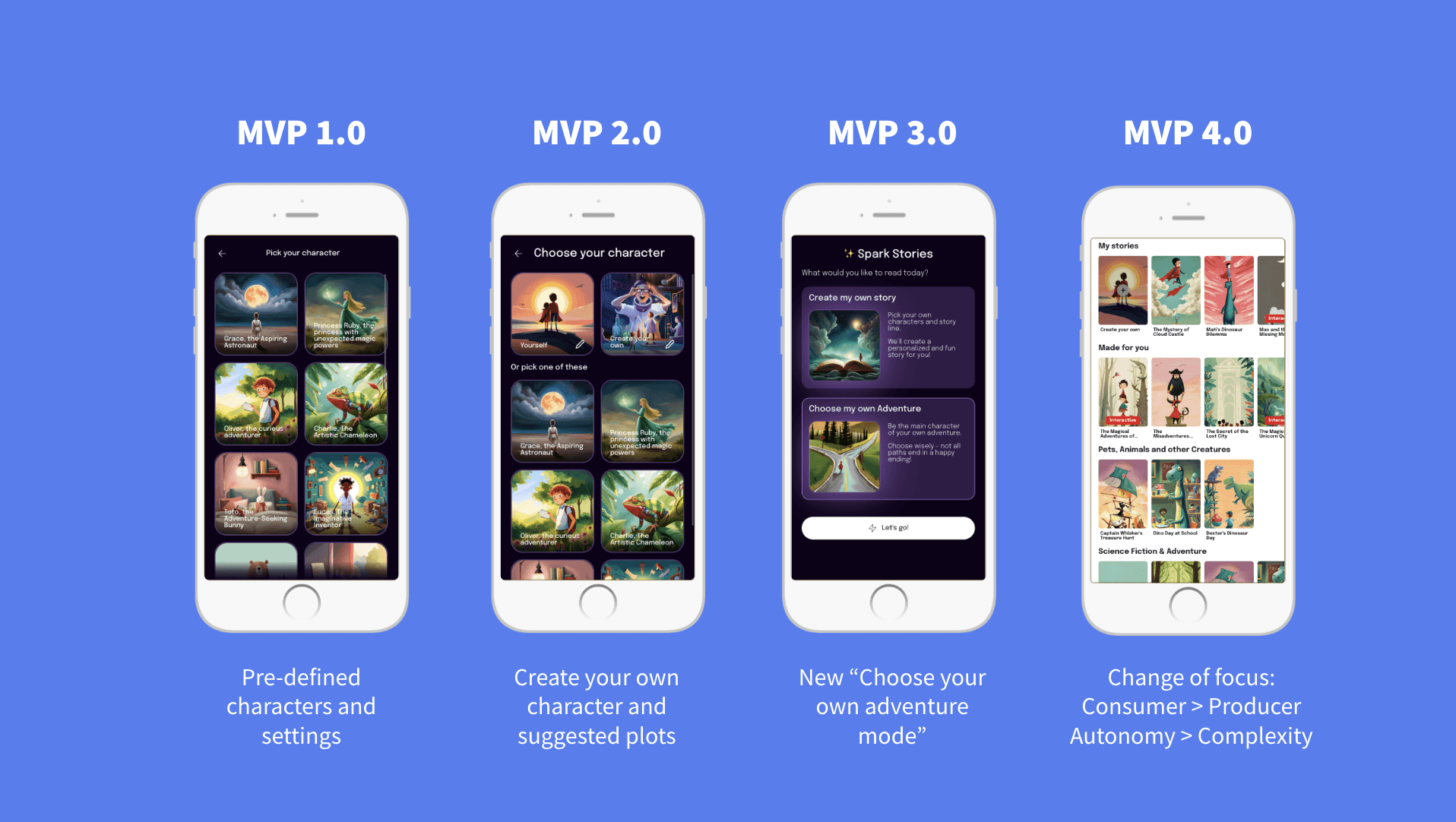
Data-Driven Product Iteration
Set up an analytics framework using Mixpanel and MS Clarity to track user engagement metrics and session recordings. This enabled a data-driven approach to prioritize features and make informed improvements.
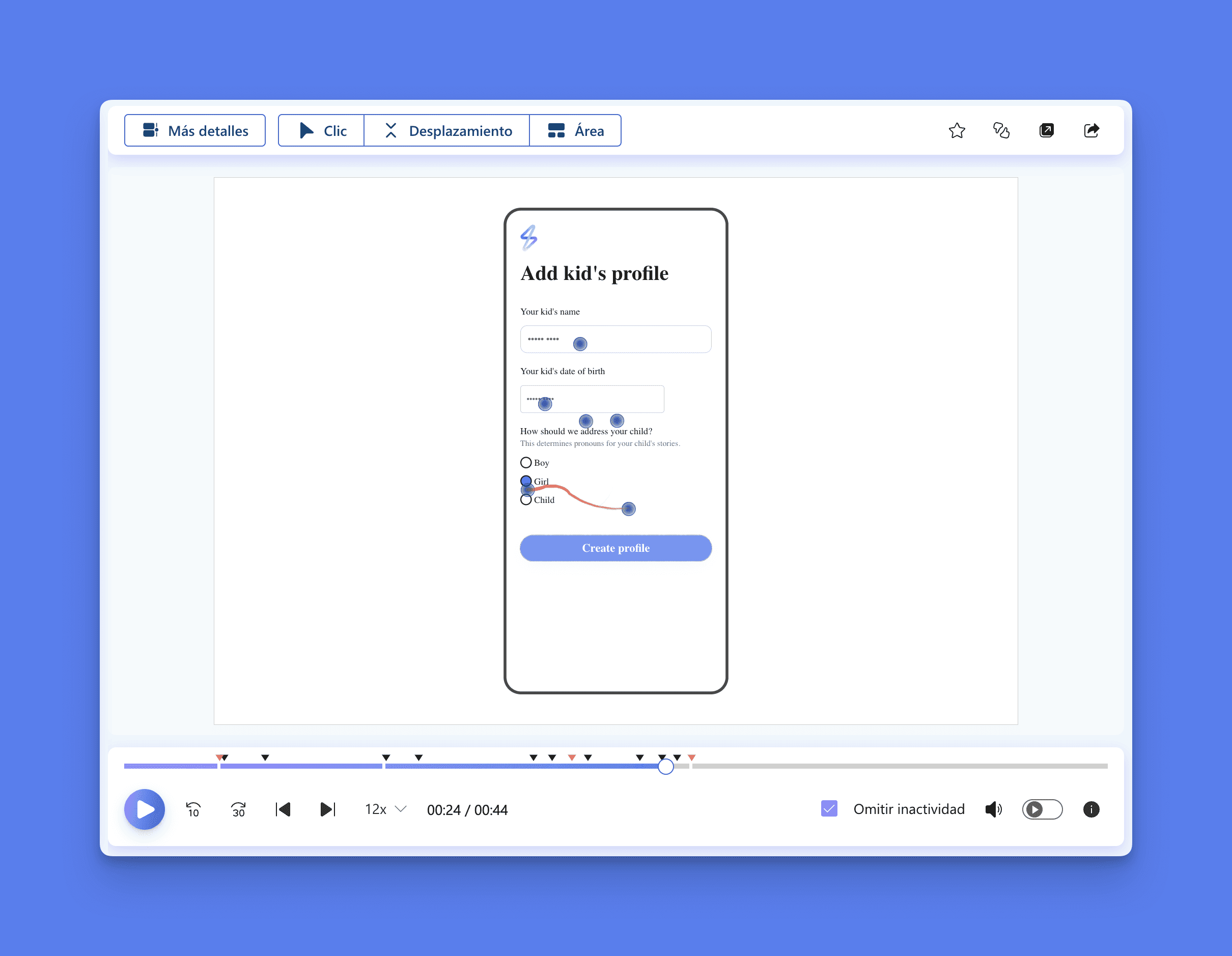
Used insights from A/B testing to optimize story features, ensuring that we provided the most engaging content to our users. Improvements based on data resulted in a 30% reduction in story abandonment rates.
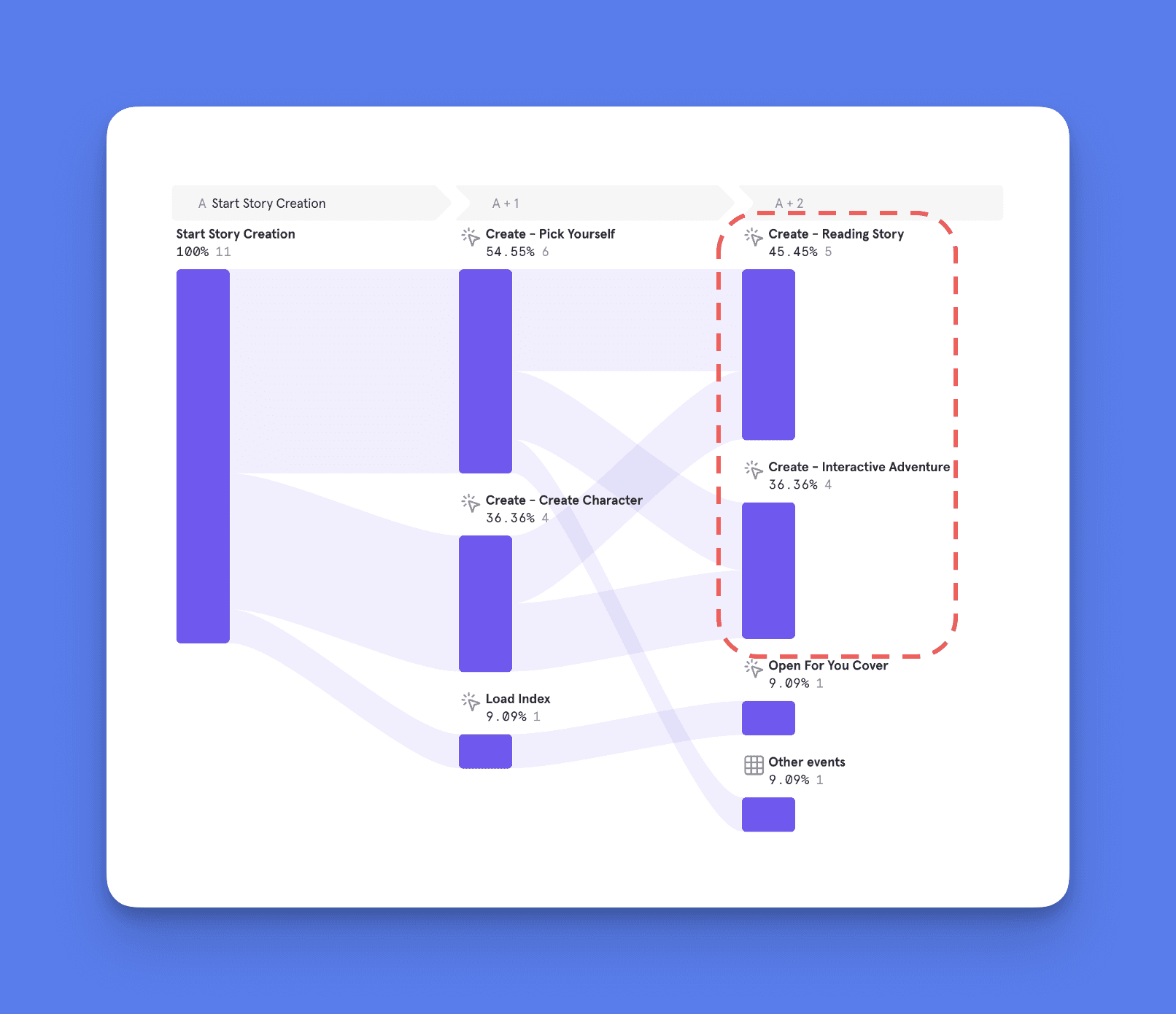
Regularly reviewed user feedback to adjust narrative arcs, add new story types, and refine personalization mechanisms to better match user preferences.
Technical Stack
LLMs: Initially used OpenAI APIs (3.5, 4-turbo, 4o, 4o-mini) and have since moved to fine-tune a Llama 3.1 70B model to improve story engagement.
Image Generation: Utilized multiple versions of Stable Diffusion (1.6, 2.2, Core) for creating images. Integrated LoRA adapters for improved image quality, style, and character coherence.
Text-to-Speech: Used OpenAI’s TTS API to provide an audio experience, catering to users who prefer listening over reading.
User Analytics: Leveraged Mixpanel for tracking user engagement metrics and MS Clarity for session recording, allowing insights into user behavior and preferences.
Achievements
Recognition: Spark Stories won awards in Stanford University’s Learning Design Challenge twice and was accepted into StartX as a Student in Residence.
Reduced Story Abandonment: Improvements in character consistency and story quality led to a 30% decrease in abandonment rates.
Improved Engagement: Added interactive story types and daily personalized recommendations, contributing to a higher rate of story completion.
What I Learned
Building Spark Stories has been a profound learning experience in balancing educational outcomes with engagement. It taught me how to:
Scale AI Systems: Optimizing LLMs and adapting workflows for daily story generation at scale.
Data-Driven Product Management: Utilizing user data for continuous product iteration and maintaining high engagement levels.
AI Development: Mastered prompt engineering, model fine-tuning, and AI safety for educational content.
Product Management Skills: Gained hands-on experience in user research, prototyping, and iterative MVP development. Learned to balance feature prioritization with real user needs, integrating feedback to shape product strategy.
Leadership and Team Collaboration: Leading cross-functional teams, from technical developers to content experts, and ensuring all aspects aligned towards the common goal of inspiring children to read.
Product Strategy: Gained insights into iterative MVP development, focusing on key user needs and evolving the product based on real feedback.


